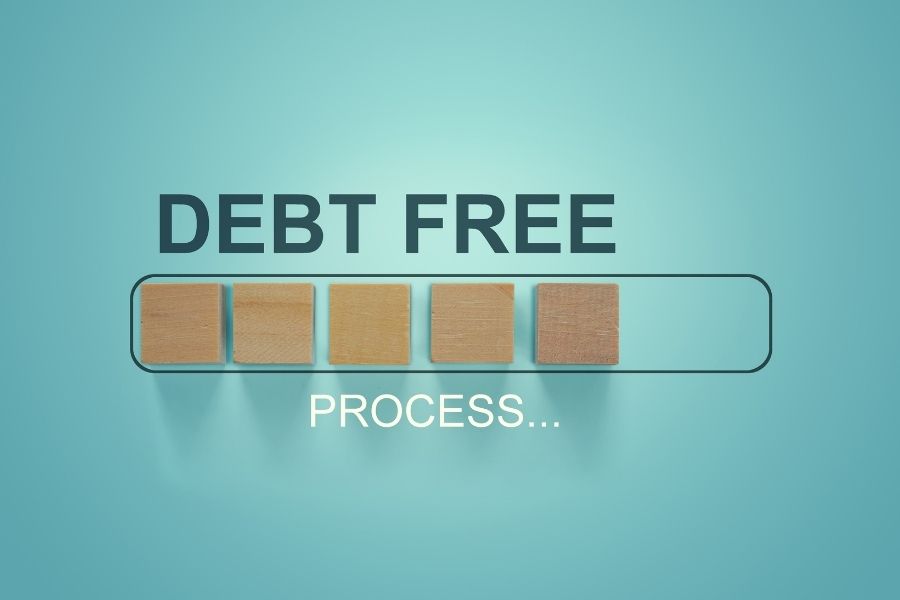In this installment of Upbeat Financials’ Finance 101 series, we’re breaking down another infamous economic term: Recession! This month, our goal is to walk you through what this term means, what the causes and effects of recessions are, and how they can affect you. In the end, we hope that you have the knowledge you need to face economic changes proactively.
So, What Exactly Is a Financial Recession?
A financial recession is a significant decline in economic activity that lasts for an extended period, typically identified by two consecutive quarters of negative gross domestic product (GDP) growth. During a recession, businesses face declining profits, unemployment rates rise, and consumer spending contracts. Some historical examples of recessions that you may have heard of or experienced include:
- The Great Depression (1929-1939): The most severe economic downturn in history, triggered by a stock market crash, banking failures, and reduced consumer demand. Many of today’s current financial regulations have their roots in the immediate aftermath of The Great Depression.
- The Great Recession (2007-2009): A global financial crisis caused by the housing market collapse, excessive subprime lending, and the failure of major financial institutions. The Great Recession produced The Dodd-Frank Wall Street Report and Consumer Protection Act. This Act requires that the Federal Reserve regularly stress-test banks and the banking sector to make sure they remain in good standing and that any issues can be managed proactively.
- COVID-19 Recession (2020): A sharp and sudden economic downturn due to global lockdowns and supply chain disruptions.
What Causes Recession?
Several factors can contribute to the onset of a recession. The most common include:
- Inflation and High-Interest Rates: When inflation rises too quickly, central banks often raise interest rates to curb spending. This can lead to reduced consumer demand and business investments, slowing economic growth.
- Stock Market Crashes: A sharp decline in stock values can result in massive wealth losses, reducing investor confidence and leading to lower spending.
- Declining Consumer Confidence: If consumers fear an economic downturn, they may cut back on spending, which further weakens the economy.
- Banking and Financial Crises: When financial institutions struggle, credit becomes less available, leading to reduced investment and business activity.
- Global Events: Wars, pandemics, and supply chain disruptions can lead to economic instability, reducing global trade and growth.
What Are the Pros and Cons of a Recession?
While recessions often are perceived as entirely negative, they do come with both challenges and opportunities.
Who Suffers?
- Employees: Increased layoffs and wage stagnation make it difficult for workers to maintain financial stability.
- Businesses: Declining consumer demand leads to reduced revenues, and small businesses often struggle to survive.
- Investors: Stock market declines and lower property values can significantly reduce wealth.
Who Benefits?
- Large Corporations with Cash Reserves: These businesses can buy assets at lower prices and expand while smaller competitors may struggle.
- Investors with Liquidity: Those with available funds can take advantage of lower stock prices and real estate deals.
- Government Initiatives: Recessions often lead to new policies that improve long-term economic conditions, such as interest rate cuts and stimulus packages.
How Do Recessions Impact Everyday Life?
A recession can disrupt daily life in several ways, including:
- Job Market Instability: Higher unemployment and fewer job opportunities.
- Housing Market Decline: Property values often fall, making it difficult for homeowners to sell at profitable prices.
- Reduced Access to Credit: Banks tighten lending policies, making it harder to secure loans and mortgages.
- Increased Cost of Living: Even as wages stagnate, the cost of essential goods and services may remain high.
- Stock Market Volatility: Retirement savings and investment portfolios can take a significant hit, reducing financial security.
How Do I Protect My Finances During a Recession?
While recessions can be challenging, individuals and businesses can take proactive steps to safeguard their financial health.
For Individuals:
- Buy The Dip: If your situation allows, maintain your contributions to investments and 401k accounts. A recession can be a rare opportunity to invest at low prices and capitalize on the eventual upward turn in the economy.
- Invest Wisely: Consider recession-resistant investments like bonds, dividend-paying stocks, and essential industries.
- Stick to a Budget: Prioritizing essential expenses and cutting discretionary spending can help weather financial uncertainties.
- Build an Emergency Fund: Having 3-6 months' worth of expenses in savings can help cover unexpected costs.
- Reduce Debt: Paying down high-interest debt, such as credit cards, can lessen financial strain.
For Businesses:
- Maintain Cash Flow: Strengthening cash reserves ensures the business can cover operating expenses during an economic downturn.
- Cut Unnecessary Costs: Analyzing expenses and eliminating inefficiencies can help sustain profitability.
- Focus on Core Offerings: Strengthening primary revenue streams can help businesses remain resilient.
- Strengthen Customer Relationships: Providing exceptional service and loyalty incentives can help maintain a steady client base.
- Explore Alternative Revenue Streams: Diversifying product lines or services can mitigate financial risk.
Recessions are a natural part of economic cycles, and while they can be challenging, preparation and informed decision-making can mitigate their impact. By understanding the causes, effects, and proactive strategies to navigate downturns, individuals and businesses can emerge stronger when the economy recovers.






